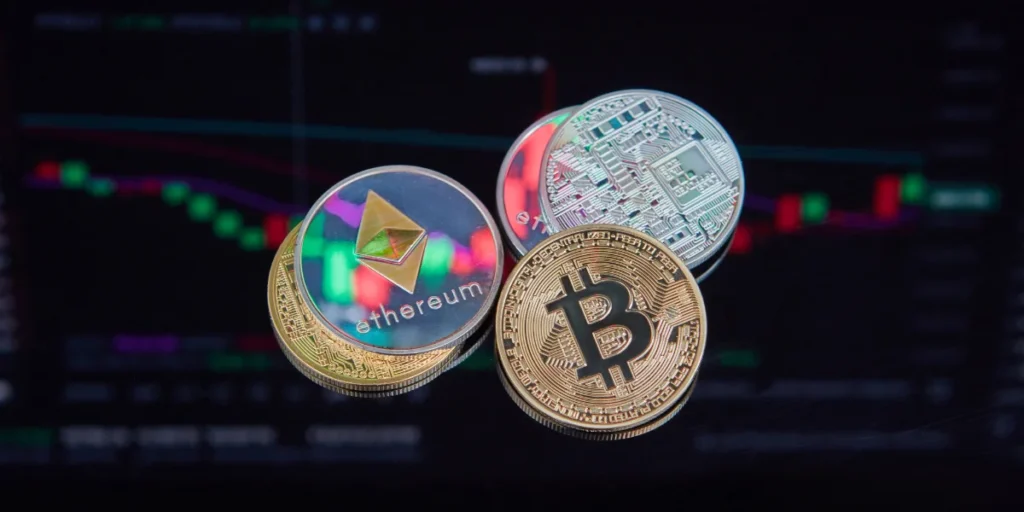The Bank Of Korea has publicly stated hesitance to consider Bitcoin as a reserve asset. In response to inquiries from the National Assembly’s Planning and Finance Committee, the bank confirmed that it has not engaged in discussions regarding the potential inclusion of Bitcoin in its reserves. This statement underscores the central bank’s commitment to a cautious and measured approach to cryptocurrency.
Understanding the Bank of Korea’s Position
Concerns Over Volatility

One of the primary reasons for the BOK’s reluctance to embrace Bitcoin is its extreme price volatility. The central bank’s officials have highlighted that during periods of market instability, the costs associated with liquidating Bitcoin can skyrocket. Such unpredictability raises significant risks for a reserve asset, which ideally should be stable and liquid.
Bitcoin’s price has dramatically fluctuated, oscillating between $98,000 and $76,000 within a mere 30-day period. As of mid-March 2025, the price had stabilised around $83,000, marking a 15% decline since mid-February. This kind of volatility makes the BOK hesitant to add Bitcoin as a reserve asset, as the potential for rapid loss in value could undermine the stability of national finances.
Global Context and Comparisons
The discussion around Bitcoin as a reserve asset is not unique to South Korea. Globally, there have been varying acceptance and regulatory approaches to cryptocurrencies. For instance, the U.S. has seen movements towards establishing strategic reserves of Bitcoin and other digital assets. This juxtaposition raises questions about how countries perceive the risks and benefits of cryptocurrencies.
The government has been asked to change its position by certain South Korean cryptocurrency enthusiasts, who contend that Bitcoin might be essential to diversifying the country’s reserves. However, the BOK remains steadfast in its criteria for reserve assets, which emphasise liquidity, accessibility, and a solid credit rating—criteria that Bitcoin currently does not satisfy.
Institutional Crypto Regulations in South Korea
While the BOK maintains its cautious outlook on Bitcoin, South Korea is making strides towards establishing a regulatory framework for institutional cryptocurrency investments. The Financial Services Commission (FSC) has announced plans to release comprehensive guidelines by the third quarter of 2025 to create a more structured environment for crypto transactions.
Lifting the Corporate Trading Ban
The South Korean government lifted its long-standing corporate cryptocurrency trading ban in a significant move. This shift opens the door for institutions and non-profit entities to engage in crypto transactions, potentially leading to increased participation in the digital asset market. The FSC’s roadmap, revealed during a meeting with local crypto experts, indicates a proactive approach to integrating cryptocurrency into the financial system.
Implications for the Market
Lifting the corporate trading ban and introducing regulatory guidelines will stimulate growth within South Korea’s cryptocurrency sector. As institutional players gain the ability to trade and invest in cryptocurrencies, the market may see an influx of capital and innovation. However, the BOK’s cautious stance on Bitcoin as a reserve asset serves as a reminder of the complexities involved in integrating digital currencies into traditional financial frameworks.
The Role of Stablecoins
Amidst the discussions on Bitcoin, stablecoins have emerged as a potential alternative for countries considering digital assets for their reserves. Stablecoins, which are pegged to traditional currencies or assets, offer a more stable option than the volatility associated with cryptocurrencies like Bitcoin.
Advantages of Stablecoins
Stablecoins provide several advantages that align more closely with the BOK’s criteria for reserve assets. Their inherent stability and liquidity make them more suitable for central banks looking to diversify their reserves without exposing themselves to the risks associated with traditional cryptocurrencies. Furthermore, the International Monetary Fund (IMF) has acknowledged stablecoins as potential reserve assets, which could have significant implications for future monetary policies.
The Case for a Won-Backed Stablecoin
Some experts, including members of Korea’s Democratic Party, have suggested that the government explore the development of a won-backed stablecoin. This initiative could provide a digital currency that aligns with the BOK’s requirements while facilitating smoother transactions within the cryptocurrency ecosystem. With stablecoins gaining traction globally, South Korea’s exploration of this avenue could position it as a leader in the digital currency space.
The Broader Implications for Financial Policy

The Bank of Korea’s cautious stance towards Bitcoin and the changing cryptocurrency regulatory environment may have broader ramifications for the nation’s financial policy. Central banks must manage the potential and challenges posed by cryptocurrencies as the global financial system continues to adjust to the growth of digital assets.
Balancing Innovation and Risk
The BOK’s stance reflects a broader trend among central banks worldwide, where balancing innovation with risk management is paramount. While cryptocurrencies offer exciting financial inclusion and efficiency possibilities, their volatility and regulatory uncertainties pose significant challenges. As South Korea forges ahead with its regulatory framework, the BOK’s cautious approach may serve as an example for other nations dealing with similar issues.
Future Considerations
The Bank of Korea is probably going to keep a careful eye on the developments in the cryptocurrency market going forward. Regarding Bitcoin and other digital assets, the central bank may reconsider its stance as the market develops and regulatory frameworks change. However, for the time being, its focus remains on safeguarding the stability of the nation’s financial system while remaining open to innovation.
Closing Thoughts – Bitcoin as a Reserve Asset
The Bank of Korea’s cautious stance on Bitcoin as a reserve asset highlights the complexities of integrating cryptocurrencies into national financial systems. While the BOK acknowledges the potential of digital assets, its focus on stability and risk management underscores the challenges associated with their volatility. As South Korea moves towards establishing a regulatory framework for institutional cryptocurrency investments, the future of digital currencies in the country remains uncertain yet promising. Whether Bitcoin will eventually find its place in the BOK’s reserves or if stablecoins will take precedence is a question that will continue to shape discussions in the financial community for years to come.



